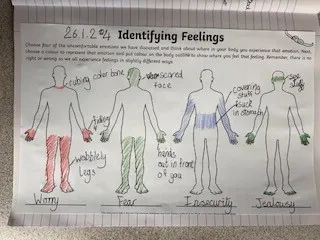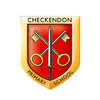



PSHE at Checkendon Primary School
Intent: why we teach PSHE
Our vision to unlock the unique voice within each child, fostering a lifelong aspiration of learning excellence, lies at the heart of the Checkendon Church of England (A) Primary School PSHE curriculum. Through structured lessons following the Jigsaw Scheme of Work, we aim to develop pupils’ personal, social, and health education, including wellbeing, relationships, and citizenship, guided by our Christian values within a caring community.
Rooted in our values of respect, integrity, compassion, courage, and hope, we aim for every pupil to develop the knowledge, skills, and attitudes to make safe, informed, and responsible choices, both online and offline.
Our PSHE curriculum is designed to:
- Promote personal, social, health, and economic understanding across all year groups.
- Equip pupils with the knowledge, skills, and strategies to manage their physical and mental well-being.
- Encourage respect, empathy, and positive relationships with peers and the wider community.
- Provide age-appropriate, inclusive Sex & Relationships Education, aligned with our parent-approved Sex & Relationships Education Policy.
- Ensure all pupils, including those with SEND and disadvantaged backgrounds, achieve success in line with their peers.
- Reflect our Christian values:
- Respect for self and others in relationships and society
- Integrity in making safe and responsible decisions
- Compassion through empathy and support for others
- Courage in discussing challenging issues and making positive choices
- Hope inspired by well-being, resilience, and personal growth
Implementation: how we teach PSHE
- We follow the Jigsaw Scheme of Work, ensuring clear progression from Reception to Year 6.
- PSHE is taught weekly through structured lessons that combine discussion, reflection, practical activities, and problem-solving tasks.
- Topics include health and well-being, relationships, online safety, emotional literacy, and economic understanding, tailored to each year group.
- Lessons are adapted to meet the needs of all learners, ensuring engagement, accessibility, and appropriate challenge for every pupil.
- Pupils are encouraged to reflect on their own values, make responsible decisions, and articulate their thoughts with confidence and integrity.
- Assessment is carried out through Sonar Small Steps, pupil reflections, and teacher observations to track understanding and progress termly.
Impact: Outcomes and evidence
Academic and personal development
- Pupils develop knowledge and skills to maintain physical, emotional, and social well-being.
- Understanding of relationships, diversity, and personal responsibility is progressive and embedded across year groups.
Christian character and values
- Pupils demonstrate respect, integrity, compassion, and courage in their interactions with others.
- They develop resilience and self-awareness, supporting positive mental health and well-being.
Social and cultural impact
- Pupils build strong, supportive relationships and a sense of community.
- They understand and respect differences, contribute positively to society, and demonstrate empathy and understanding.
- By the time they leave Checkendon, pupils are confident, responsible, and reflective, ready to flourish in the next stage of their education and life.
Evaluation and Continuous Improvement
- Progress and understanding are monitored termly through Sonar Small Steps, pupil voice, work scrutiny, and observations.
- Governors and subject leaders monitor impact, ensuring alignment with the school’s Christian vision and Ofsted priorities: curriculum quality, personal development, inclusion, and engagement.
- The Sex & Relationships Education Policy and curriculum content are reviewed with input from a parent working group to ensure relevance, clarity, and community support.
| Name | Format | ||
|---|---|---|---|
| Files | |||
| How Jigsaw supports Curriculum Mapping and Progression in PSHE.doc | .doc | ||
| PSHE informationleafletforparentsandcarers Jigsaw.pdf | |||
| PSHE aguideforparentsandcarersleaflet Jigsaw.pdf | |||
| PSHE Snapshotoverviewmap Jigsaw.pdf | |||
| The national curriculum_ Other compulsory subjects GOV.UK.pdf |



